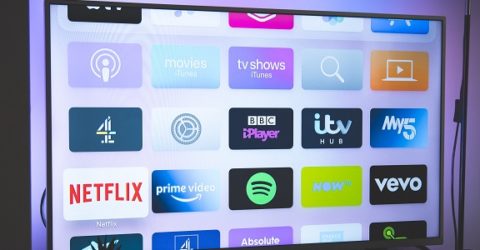Are there too many TV channels in today’s online age?
The concept of having too many TV channels would have seemed ridiculous twenty years ago, but we’re now saturated with broadcasting content

We live in an age of unprecedented online leisure opportunities, with an ever-expanding roster of games, social media sites and content platforms competing for our attention.
In some respects, this tsunami of media content has been a welcome distraction during a year of draconian restrictions on personal freedom and movement.
However, it also has a downside.
Traditional content like television programming has been remorselessly squeezed by the proliferation of online distractions competing for our time and money.
Yet at the same time, the amount of television content has also been mushrooming.
MoreThe UK’s best streaming services compared
Sky alone broadcasts 18 proprietary channels of (often self-made) content, while the BBC supports ever-more niche audiences with the likes of the BBC Alba Gaelic channel.
There’s an onslaught of streaming media services including Netflix, Amazon Prime TV and Disney+, which has recently added a huge swathe of Fox content to its archives.
And that’s before we consider home-grown streaming platforms BritBox and NOW TV.
With so much competition for eyeballs, we simply have far too many TV channels in the UK.
And the consequences of this saturation are beginning to manifest themselves.
The people’s choice
It’s hard to imagine there were only three television channels in the UK forty years ago, or to remember the excitement when Channel Five came along in 1997.
Today, even a basic Sky subscription brings access to 300 channels including Create and Craft, Body in Balance and Jewellery Maker.
It’s fair to assume none of these channels makes their owners much money, or achieves significant viewing figures.
Yet the consequences of too many TV channels extend beyond confusing electronic programme guides.
They manifest when channels disappear – often literally overnight – or cease broadcasting.
Music stations have been hit particularly hard by the competition provided by YouTube, while streaming platforms like Spotify cater for the most niche of musical sub-genres.
The entire roster of Disney channels has recently been withdrawn from the UK, with all content relocated to Disney+.
Sky dropped the likes of Horse and Country from its schedules last month, while Plusnet stopped offering their YouView pay TV service to new customers.
Even existing Plusnet YouView clients will shortly see a swathe of channels being dropped.
Sky History and its sister channel History 2, VICE and Lifetime will be removed at the end of this month, while SYFY and E! are set to vanish next month.
Plusnet’s parent company BT has already taken similar steps, and it’s unlikely to be the last such cull of marginal channels.
There simply aren’t enough eyeballs to justify the presence of too many TV channels, and not enough ad revenue to support original content production or programme screening royalties.
Many more channels are expected to follow the lead of the late, lamented music channel Scuzz, and announce their withdrawal from the UK’s overcrowded TV sector.






